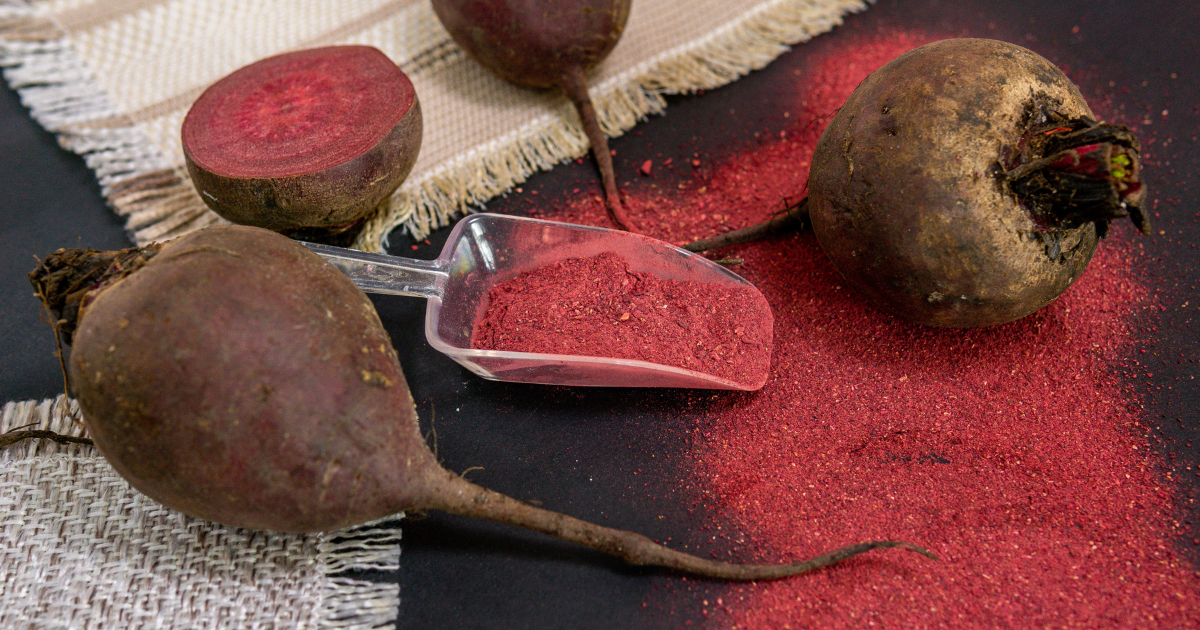Level Up Your Nutrition Game With Our Freebies
Alex
I provide nutrition coaching for endurance athletes to improve performance and body composition through a simple and flexible eating style.
Hi, I'm
ATHLETE EATING GUIDE →
LEARN MORE →
ATHLETE GROCERY SHOPPING GUIDE →
10-DAY PROTEIN-PACKED SAMPLE MEAL PLAN
READY TO FUEL?
incredible value!
The fueling guide bundle serves as your one-stop-shop for strategies to fueling before, during and after your workouts.
Nitric oxide, often referred to as NO, is a fascinating molecule with a wide variety of performance-enhancing benefits for runners and endurance athletes. This naturally occurring compound plays an important role in enhancing athletic performance. Improved blood flow, increased oxygen delivery to muscles, and assistance in the removal of metabolic waste products are just a few benefits. Nitric oxide for runners may experience improved endurance, faster recovery times, and improved cardiovascular health.
Whether through food choices or supplementation, incorporating nitric oxide into your nutrition plan can lead to significant gains in stamina and fitness levels. Read on to discover more of the beet-boosting benefits of nitric oxide for runners and endurance athletes.
Understanding Nitric Oxide for Runners
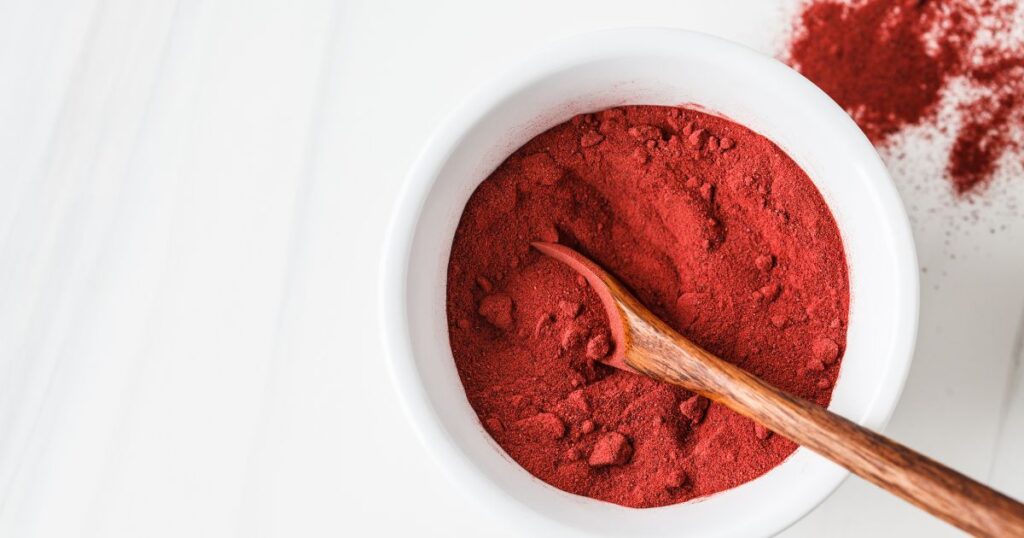
It’s important to understand what nitric oxide is to better understand the vast health benefits. So bear with me here as we dig into the chemistry…
Nitric oxide is a molecule consisting of one nitrogen (N) atom and one oxygen (O) atom. It functions as a signaling molecule in various biological processes, notably in the cardiovascular system.
Nitric oxide helps relax and dilate blood vessels, leading to improved blood flow and regulation of blood pressure. This molecule plays an important role in decreasing blood pressure, neurotransmission (the transfer of information between neurons), and immune responses. This helps contribute to overall cardiovascular health and various physiological functions within the human body.
The Beetroot Connection
You’ve studied up on a wide variety of nutrition supplements that market touted benefits including tart cherry juice, caffeine, sodium bicarbonate, green powders, and beta-alanine, among many others. Now you can’t stop hearing about the health-boosting benefits of beets.
Love or hate ‘em (I prefer love ‘em), we at least have to appreciate just how health-promoting beets are. Beets offer one of the richest sources of inorganic nitrate. Ingested nitrate has been researched to enhance athletic performance in several ways, primarily through its conversion into nitric oxide.
Nitric Oxide for Runners – Its Impact on Performance
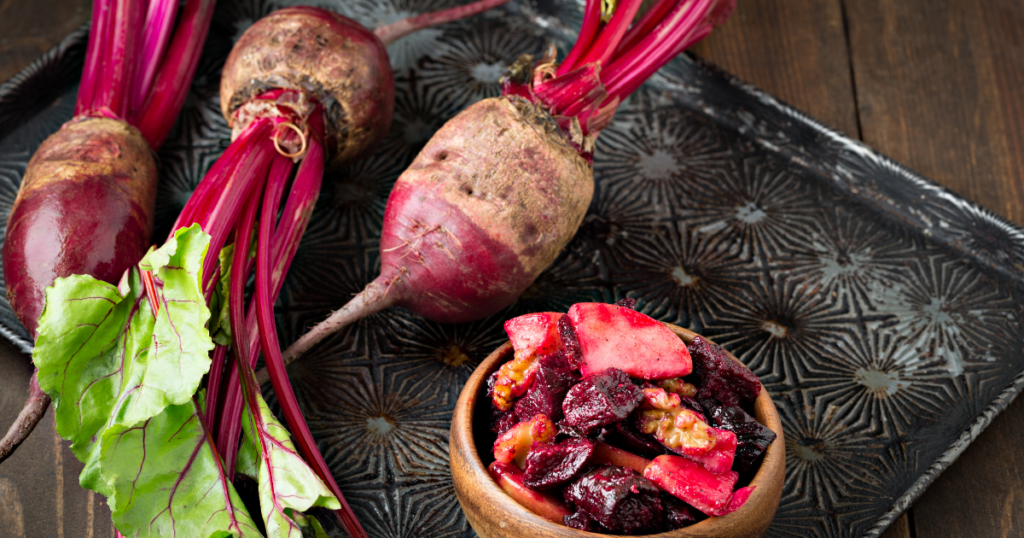
There is growing and compelling research to suggest that beetroot juice and beet consumption increases levels of nitric oxide. This serves multiple functions that are important for runners and endurance athletes including:
- Increased blood flow
- Increase gas exchange
- Mitochondrial biogenesis and efficiency
- Strengthening of muscle contractions
- Increase muscle power output
These biomarker improvements indicate that consumption of beetroot juice and beets could have performance-enhancing benefits on cardiorespiratory endurance.
Let’s Turn up the Beet (pun intended)
The terms “beetroot” and “beets” are often used interchangeably. The beetroot is the taproot portion of a beet plant usually known in North America as beets. While in other global locations may be referred to as beetroot.
Per 1 cup serving of beets, there are approximately 60 calories, 0g of fat, 13g of carbs, 4g of dietary fiber, and 2g of protein. Beets offer important health-promoting nutrients for runners and endurance athletes including folate, manganese, potassium, iron, and vitamin C. They can be prepared raw or cooked and are often consumed roasted, pickled, tossed in a salad with goat cheese and slivered almonds, or even as a beet hummus dip for veggies. Beets can also be the perfect addition to a post-workout recovery smoothie.
The vast health-promoting benefits of beets can also be consumed in the juice form. Certainly, you can juice fresh beets with a juicing machine though convenience is important for many athletes. Pre-packaged beet juice is also available at most grocery retailers and online shopping platforms. If you are utilizing beet juice in your flexible meal planning and prepping routine, I would encourage opting for beet juice with no sugar added.
Beyond Beets: Other Nitric Oxide-Rich Foods for Runners
If you are not a beet enthusiast, that’s ok! Truthfully, they aren’t my favorite. Fortunately, there are countless other nutritious foods that can boost your nitric oxide levels. This includes:
- Leafy greens such as spinach, kale, and arugula
- Citrus fruits
- Watermelon
- Pomegranate
- Nuts and seeds
- Dark chocolate
To increase your nitric oxide in other ways, consider adding spinach or kale to a batch of protein-packed egg muffins or topping your mason jar salad with sliced watermelon. Adding a serving of magnesium-rich pumpkin seeds to your mid-day charcuterie board can be a tasty way to boost nitric oxide. Or even end your evening with a small square of dark chocolate (dietitian orders)!
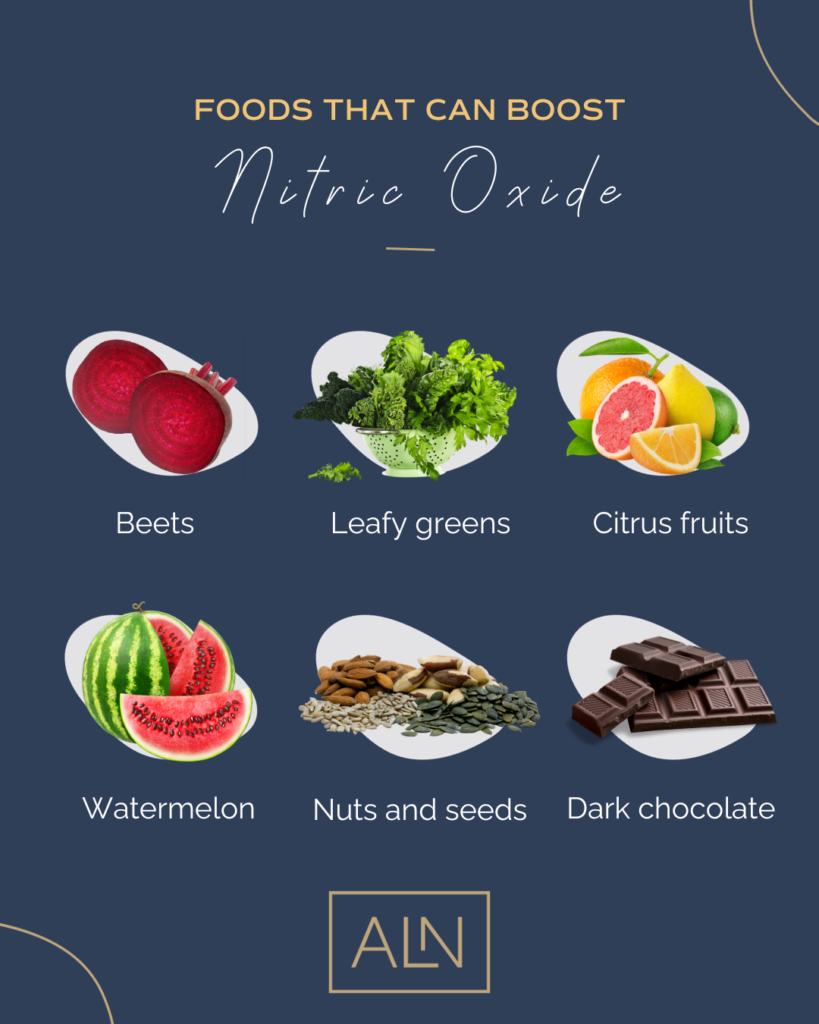
Nitric Oxide for Runners – Supplements
As a sports dietitian, I always encourage a foods-first approach to nutrition. In this instance, it means optimizing nitrate intake through food-rich sources before considering any nutrition supplement. Supplements should never be a replacement for including a wide variety of healthy foods in your individualized athlete nutrition plan.
However, if you are considering a supplement, beet supplements are available typically in chewable, capsule, and powder forms. The optimal dose of nitrate supplementation tends to be 0.1-0.2mmol/kg of body weight (6.4-12.8mg/kg of body weight). This would be approximately 440-870mg for a 150-pound (68kg) athlete.
Precautions and Considerations
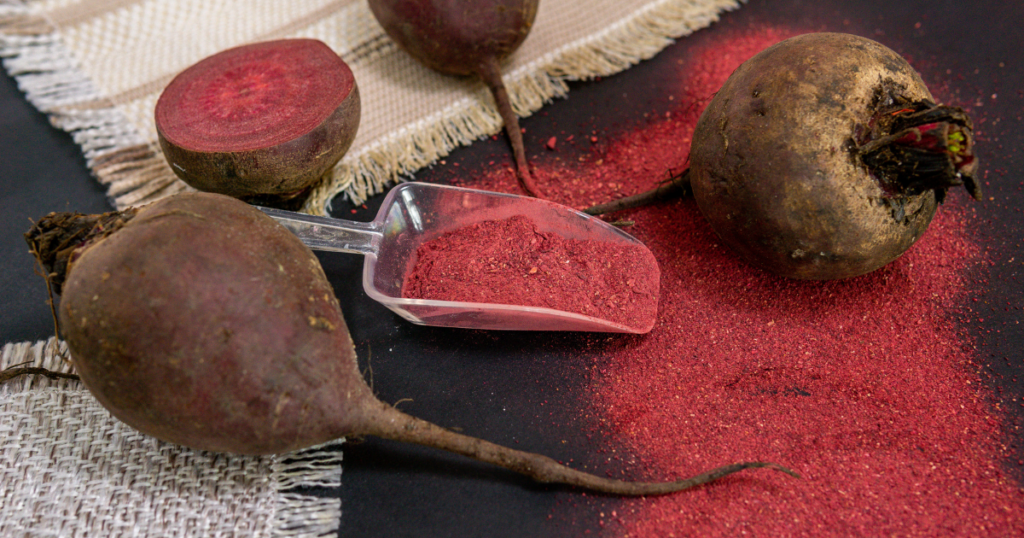
As with any nutrition supplement, it is important to speak with your medical provider prior to starting. Some nutrition supplements have the potential to do more harm than good and ca also interfere with medications.
If you are opting for a beet supplement in the chewable, capsule, or powder form, it’s important to choose one that is third-party tested such as Informed Choice for Sport or NSF Certified for Sport. In a recent study published, it was reported that more than 28% of the analyzed dietary supplements posed a risk of unintentional doping. The contaminated products originated all over the world, mostly from the U.S., but also from the Netherlands, UK, Italy, and Germany. Some of the samples originated in China and Southeast Asian countries.
Foods first, always
I have said it before and I will shout it to the moon if needed. There is no single performance-enhancing supplement that will give you an overwhelming competitive edge versus focusing on your overall nutrition intake to do so.
Are you feeling lost when it comes to improving your performance nutrition plan? Are you ready to hit that next PR on race day? Working with a specialized sports dietitian is one of the best ways to maximize your performance as an athlete. We have limited spots available for our premium 1:1 nutrition coaching services. Make sure to apply today to secure your spot just in time for your next big race! There is no better time to invest in your health and wellness.
Alex
I provide nutrition coaching for endurance athletes to improve performance and body composition through a simple and flexible eating style.
Hi, I'm
LEARN MORE →
take the quiz!
Let's discover your Endurance Nutrition IQ
How well do you know your fueling? Answer these questions and let's see where your endurance nutrition knowledge is at!
Take the quiz
level up your nutrition game with these freebies
free downloadS
Protein-Packed 10-Day Sample Meal Plan
Athlete Eating Guide
Athlete Grocery Shopping Guide
1
2
3
Inspiration to fit 120 grams of protein into your day
Planning what goes on your plate
Putting the right foods in your grocery cart
